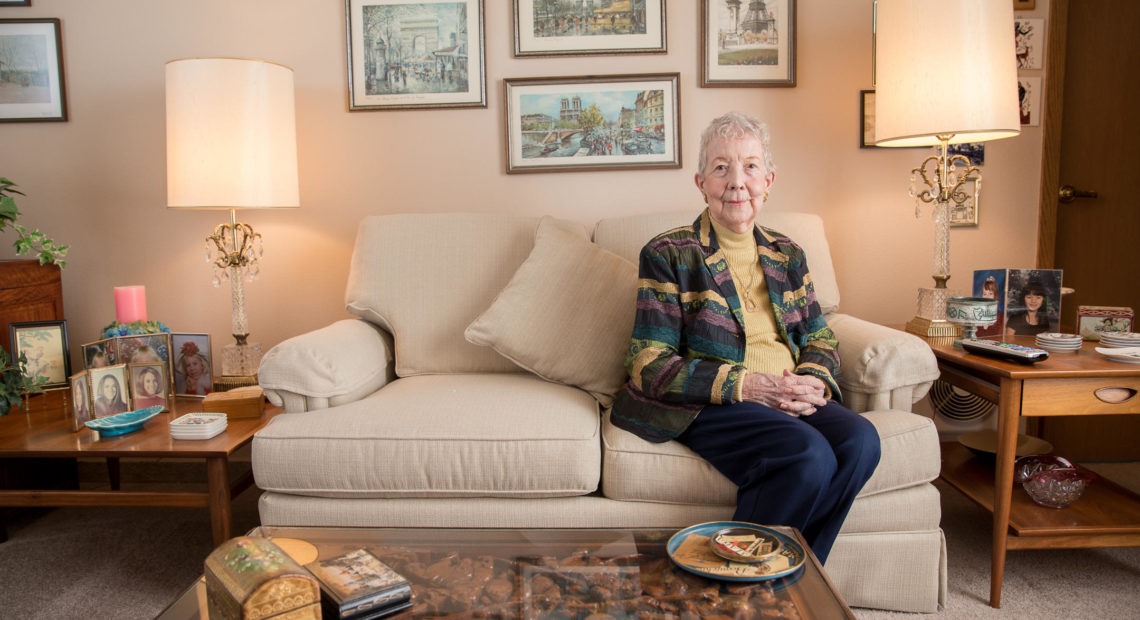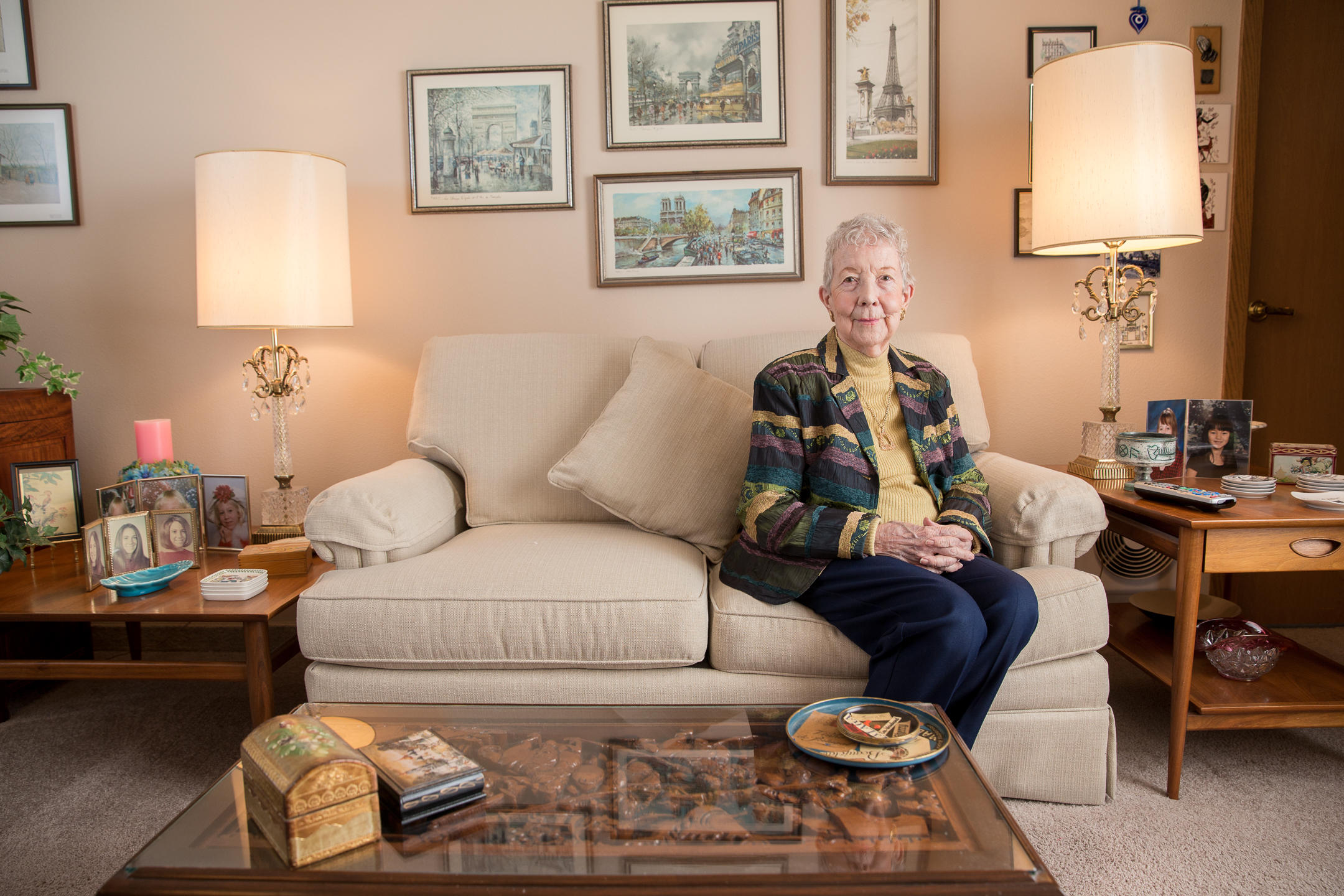
Daughters of Hanford: Manhattan Project Secretary Locked Up Secret Files At Night
Listen
In World War Two, the Hanford Nuclear Reservation was brand new. Sue Olson was there as a young secretary. She took shorthand, pumped out calculations and locked up top-secret papers. She’s become known as one of the “Daughters of Hanford.”
When Sue Olson was a newlywed, her husband never asked about her work. And she knew never to bring up his.
“And I never asked but I knew it was extremely important,” Olson says.
It was that way for a year. Until the U.S. dropped an atomic bomb on Hiroshima in World War II.
They both worked at Hanford, where the government made plutonium for bombs. Olson was a secretary. She earned top-secret clearance. Her husband was a scientist who worked on refining plutonium. And she says they never talked about it until that day.
Sue Olson’s voice cracks a bit when she talks. It’s a medical condition she’s had for more than 40 years.
Anyway, when Olson started working for the U.S. Army Corps as a young woman, she first heard about Hanford in an urgent message: “Don’t come to Hanford.”
Back in ‘43, her friend was working here already. Olson still remembers the yellow paper the message came on–and she knows the rest of it by heart:
“… it’s rattlesnakes, sagebrush and dust storms,” Olson says.
So she took a different job at another Manhattan Project site — Oak Ridge, Tennessee. Getting off the train in Knoxville …
“… there was a nice lady from the personnel department who met me there,” Olson says.
The women slipped into the back of an olive-drab car.
“And she said, ‘This will be one of the most interesting times of your life,'” Olson says.
Oak Ridge is where Olson met her husband Bob. In less than a year they were hitched. And within a few weeks they were transferred to Hanford. She didn’t want to go, but her husband said it would just be a few months.
It was October first, 1944 when they drove from Tacoma to Richland. A few days later, they got the keys to their dust-laden tiny government prefab home.
“We had no telephone, couldn’t get a phone,” Olson says.
Many everyday things were rationed. She packed a lunch each day and rode a bus to and from work. A busload of workers rattling through Hanford. A busload of workers who didn’t talk about work.
For months Olson worked six days a week as a one-woman typing pool for several departments.
Sue Olson: “ And finally they sent another girl out to be with me and help me with all the typing,” Olson says. “And she didn’t take shorthand. I still took all the shorthand.”
And she did a lot of computations on a manual calculator. She still won’t say what the numbers were about.
Olson says the whole attitude of wartime Hanford was pure urgency. She locked her filing cabinet up tight. She didn’t even leave it unlocked when she went to the restroom.
At the office there weren’t sheet cakes, team-building exercises or office pranks. No jokes a la The Office or MASH. She says everyone was anxious to do the best they could in wartime.
“And so when we went to work, we worked,” Olson says. “We didn’t sit around and talk to each other. Not anywhere.”
Sometimes there were breaks: Skiing, hunting. Lots of bridge. And every once in a while …
“… there would be a dance band come to Richland to play,” Olson says. “And my husband and I did go to those dances. Those were rare.”
Olson quit Hanford to have a daughter–who’s grown now. Bob died decades ago. Sue Olson retired at 87 from a second career in real estate.
At 94, Olson still has a top-secret mentality. She’s asked me more than once if I thought we were giving up any government secrets. This time — I think we’re safe.
Copyright 2015 Northwest News Network
Related Stories:

Head Start serves 15,000 kids in Washington. And its regional office just closed.
The regional Head Start office closed this week, making some advocates nervous about the program’s future. (Credit: Barnaby Wasson / Flickr Creative Commons) Listen (Runtime 1:00) Read The regional Head

Astronauta de la NASA José Hernández inspira a estudiantes durante visita a Tri-Cities
EL astronauta de la NASA José Hernández visitó el este de Washington y compartió su historia de resiliencia y determinación con estudiantes locales.

Washington, Idaho rank high for public health emergency preparedness
Both states saw steady or increased funding for public health, but Idaho still among lowest for vaccinations.













